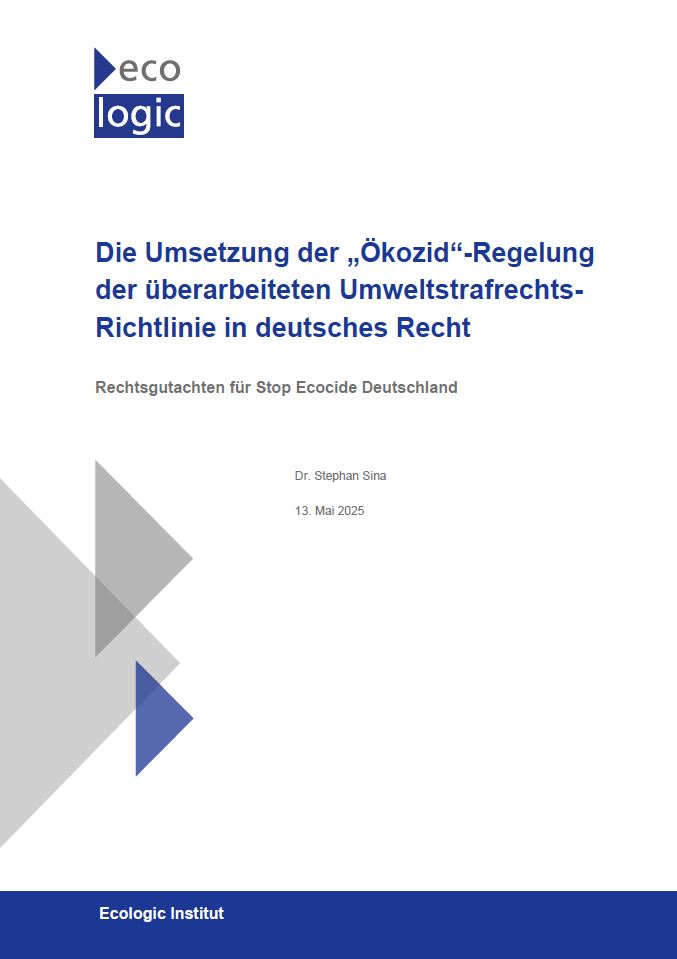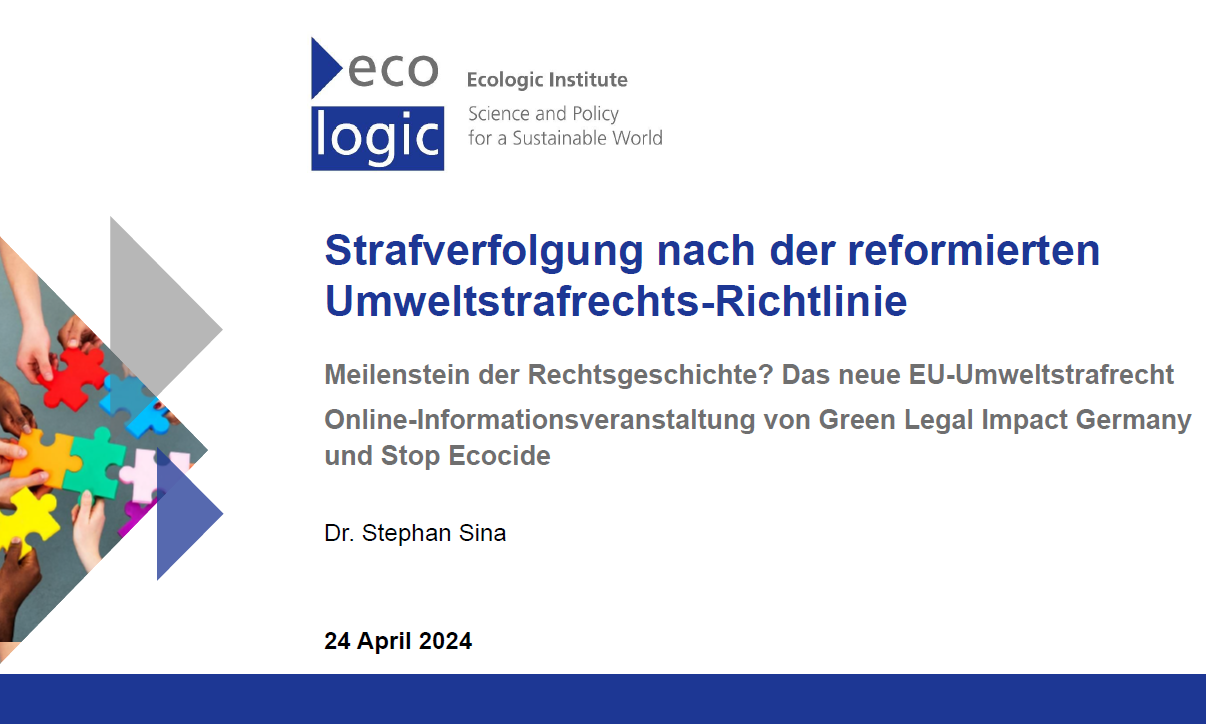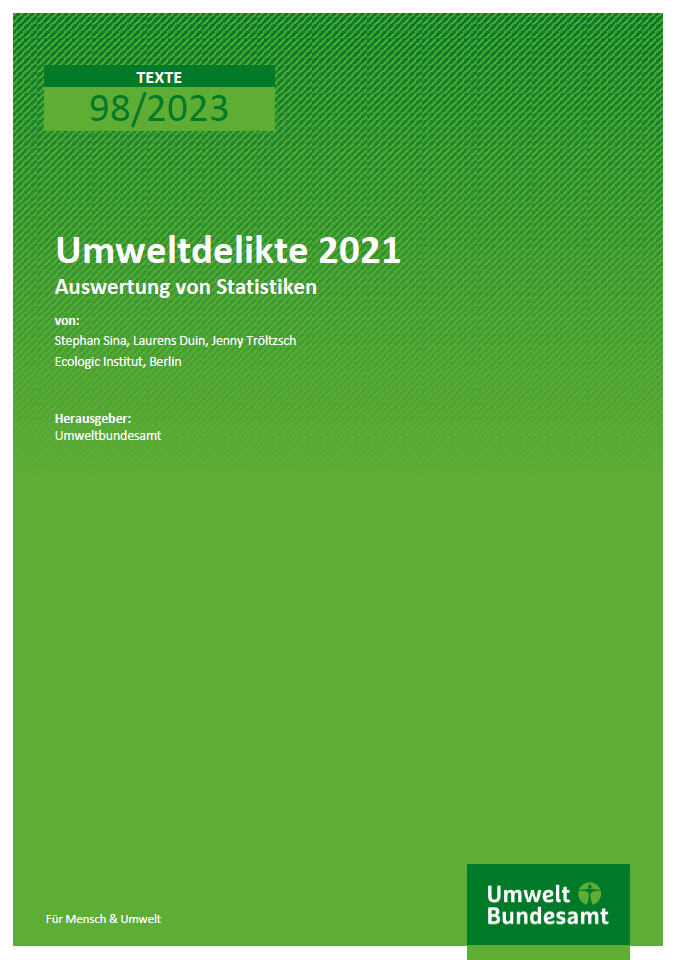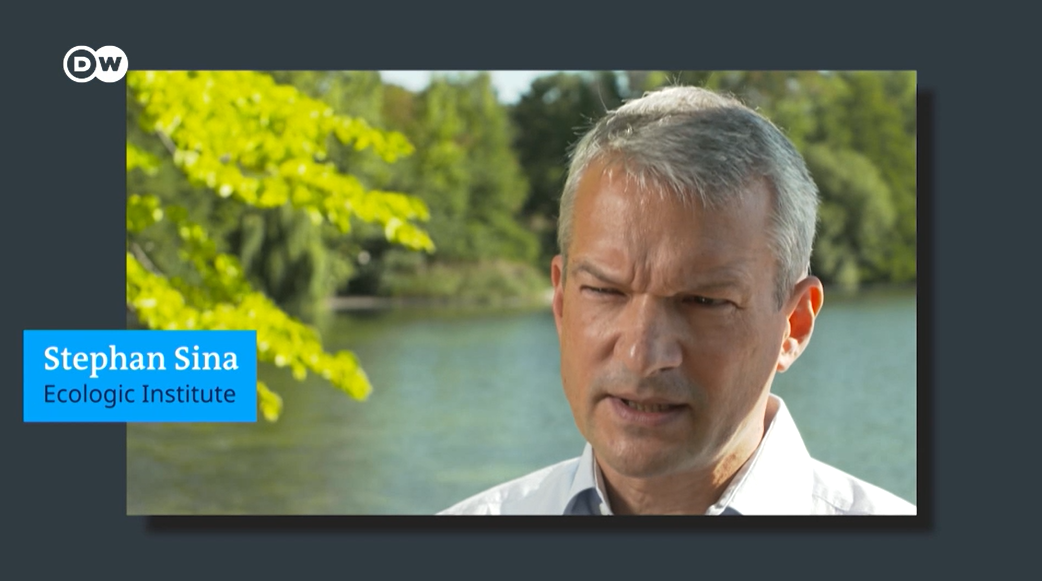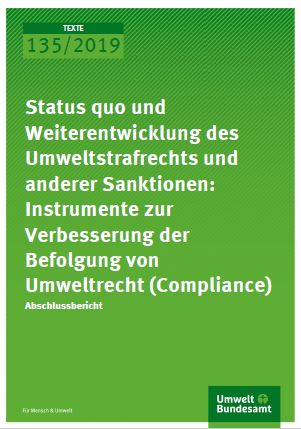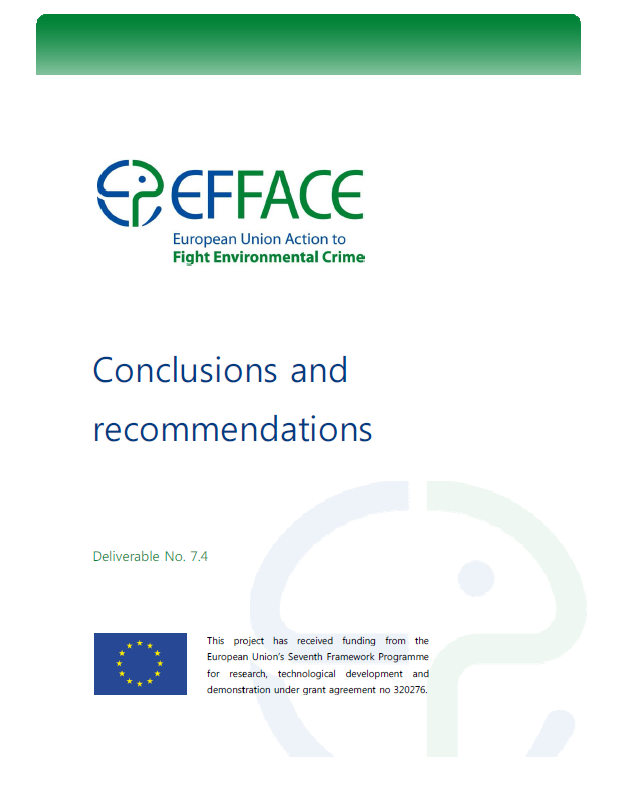Die Umsetzung der "Ökozid"-Regelung der überarbeiteten Umweltstrafrechts-Richtlinie in deutsches Recht
Gutachten
- Publication
- Citation
Sina, Stephan 2025: Die Umsetzung der "Ökozid"-Regelung der überarbeiteten Umweltstrafrechts-Richtlinie in deutsches Recht. Ecologic Institut, Berlin.
In 2024, the EU comprehensively revised its Environmental Crime Directive (ECD). In the trilogue negotiations, the European Parliament succeeded in including qualified criminal offences that are comparable to 'ecocide'. These are criminal offences under the ECD that
- destroy an ecosystem of considerable size or environmental value or a habitat within a protected site, or
- cause either irreversible or long-lasting and significant damage to such an ecosystem or habitat or to the quality of air, soil or water.
The term 'ecocide' is known primarily from the discussion about an extension of the Rome Statute of the International Criminal Court, in particular from the proposed ecocide definition by the Independent Expert Panel for the Legal Definition of Ecocide (IEP).
On behalf of Stop Ecocide Germany, this report analyses how the 'ecocide' regulation of the ECD could be transposed into German law. After an introduction (Chapter 1), the 'ecocide' regulation is first analysed in the context of the amended ECD (Chapter 2). Chapter 3 analyses the extent to which German law needs to be adapted in order to implement the minimum provisions of the ECD on 'ecocide'. The report's main focus is the development of options and proposals for implementation in Chapter 4, which already takes into account the implementation proposals for EU Member States from the Manual for a National Criminalisation of Ecocide published by a working group on 12 February 2025. The summary provides an overview of the most important recommendations of the report.
The report outlines two basic options for transposing the ‘ecocide’ regulation into German law:
- For an implementation close to the ECD, the report recommends supplementing Section 330 of the German Criminal Code (StGB), which regulates particularly serious cases of environmental criminal offences, with a new offence qualified by an infringement in paragraph 2 no. 3. The legal consequence should be a prison sentence of at least 1 year and a maximum of 10 years. Definitions relevant to the 'ecocide' provision, such as 'ecosystem', should be added to the definitions in Section 330d StGB.
- Alternatively, implementation as an offence qualified by endangerment could be considered. This would increase the effectiveness of the provision and tie in with the approaches to recognising an ecocide crime in international criminal law. A formulation in which the dangerousness only needs to be determined in a general manner appears to be the most promising. Instead of in Section 330 of the German Criminal Code, it would make most sense to implement this in a separate criminal offence.
If 'ecocide' offences can be attributed to them, companies must also be prosecuted. The fines or penalties to be provided for this should ideally be regulated in a separate law on corporate sanctions and linked to annual global turnover. The amount should be based on the ratio of the minimum maximum penalty for 'ecocide' offences for natural persons compared to that for 'simple' environmental offences under the ECD and should ultimately be set at 10% of annual turnover.
Also important for the 'ecocide' regulation is the ECD's stipulation that an authorisation under national law does not exclude the illegality of the action in certain cases, as is already largely provided for in Section 330d (1) No. 5 of the German Criminal Code. The new case of a 'manifest breach of relevant substantive legal requirements' should be applied to manifest and significant breaches of relevant substantive authorisation requirements. To ensure that these exceptions to the exclusion of the unlawfulness of a licence also apply to so-called ancillary criminal law, i.e. the criminal law provisions in specialised environmental legislation, it would make sense to include an extended version of the current Section 330d (1) No. 5 StGB in Section 11 of the General Part of the StGB.
Finally, the ECD regards causing destruction or irreversible or permanent significant damage to an ecosystem as an 'aggravating circumstance' that can lead to a more severe penalty. This may, but does not have to, be transposed into German law. The fact that Section 330 para. 1 sentence 2 no. 1 StGB already contains a similar particularly serious case, which could be adapted to the requirements of the ECD, speaks in favour of transposition.
